The Supreme Court on Thursday accepted the Punjab government’s urgent application seeking omissions of certain portions from the court’s July 24 revised verdict in the Mubarak Sani case after taking input from scholars.
The development came after a hearing on the Punjab government’s urgent request to omit specific sections from the judgment.
On February 6, a two-judge bench of the Supreme Court, led by Chief Justice of Pakistan (CJP) Qazi Faez Isa, overturned the conviction of Ahmadi citizen Mubarak Sani, who had been accused under the Punjab Holy Quran (Printing and Recording) (Amendment) Act of 2019. The court noted that the alleged offence had not been criminalised until 2021, leading to the decision to set aside Sani’s conviction and order his immediate release.
However, the judgment was subsequently challenged by the Punjab government and other parties. On July 24, the Supreme Court accepted the review petitions and issued a revised order. Despite this, the Punjab government sought further amendments to the revised verdict after consulting with some clerics.
Today, a three-member bench — led by CJP Isa and including Justices Irfan Saadat Khan and Naeem Akhtar Afghan — took up the Punjab government’s August 17 petition.
After hearing all the arguments from the parties involved — including clerics — the court announced its verdict and accepted the Punjab government’s application to omit certain sections from the previously revised judgement.
The court also ordered that the expunged paragraphs not be used as judicial precedents in the future.
The hearing
Jamiat Ulema-i-Islam-Fazl (JUI-F) chief Maulana Fazlur Rehman — one of the religious scholars who had requested the government to seek another review of the ruling — appeared before the court today.
Attorney General for Pakistan (AGP) Mansoor Usman Awan was also present during the hearing, while prominent religious scholar Mufti Taqi Usmani appeared via video link.
At the outset of the hearing, AGP Awan informed the bench that the Parliament and some clerics had asked the federal government to approach the SC regarding the matter.
He further said that a letter was received from the NA speaker and directives were also issued by Prime Minister Shehbaz Sharif. Admitting that a “second review” of the original verdict could not be held, the AGP noted that the government, hence, had approached the court as per the Code of Civil Procedure.
AGP Awan urged the court to hear the clerics’ arguments since the matter was a religious one.
“I don’t want to say but am helpless; I pray in every prayer that may God prevent me from making any wrong decisions,” CJP Isa said. “A person is known by their actions and words,” he observed.
The chief justice stressed that the Parliament’s words were highly respected by the court.
The court then decided to seek assistance from clerics present in the courtroom, including Fazl, Mufti Sher Muhammad, Sahibzada Abul Khair Muhammad Zubair of the Milli Yakjehti Council, and Jamaat-i-Islami’s Fareed Paracha.
CJP Isa then noted that the court had also sought assistance from Mufti Taqi Usmani but he was in Turkiye. Therefore, the scholar joined via video link. Mufti Muneebur Rehman’s representative was also present in the court.
Mufti Taqi Usmani, in his arguments, urged the court to omit paragraphs 7 and 42 from the July 24 revised judgment. He pointed out what he said were “mistakes” in those paragraphs.
Paragraph 42 of the judgment stated: “Details of the Constitutional and legal provisions and judicial precedents have proved that after declaring both groups of Ahmadis as non-Muslims, according to the constitution and law, they have the right to practice their religion and express and preach it, provided that they will neither use religious terms for Muslims in public nor present themselves as Muslims in public.
“However, they have the right to ‘privacy of home’ in their houses, places of worship, and specific private institutions within ‘reasonable limits’ prescribed by law.”

Explaining his stance, the cleric said: “The term ‘tableegh’ (to preach) was used in paragraph 42, which meant that unconditional permission was granted.”
Upon hearing that, CJP Isa read out section 298 of the Pakistan Penal Code (PPC) which details punishment for a person who with the “deliberate intention of wounding the religious feelings” of a person, “utters any word or makes any sound in the hearing of that person or makes any gesture in the sight of that person or places any object in the sight of that person”.
In response, Mufti Usmani pointed out that as per Section 298, “a non-Muslim was not allowed to preach while posing as a Muslim”.
He said that since the Ahmadiyya community was “among the minority but do not identify themselves as non-Muslims”, section 298 of the PPC did not apply, therefore, paragraph 42 of the judgment needed to be omitted.
“Taqi Usmani sahib, I apologise. I want to clarify that those who were issued notices had submitted many documents to us. If we had reviewed them in detail, then perhaps an entire book would have been made out of that decision,” the CJP said in his response to Usmani.
“I could not review all those documents, which is my mistake. Point out the mistakes and your objections to the court order to us. If we do not understand something, we will ask,” the top judge added.
Justice Isa observed that Pakistan was an Islamic republic, hence the Holy Quran and the Holy Prophet’s (PBUH) ahadith were referred to in court orders.
“I am not above any mistake,” CJP Isa acknowledged. He observed that “lengthy verdicts” were needed to be written in such matters.
The top judge highlighted that the Feb 6 decision was “now left behind” after the court reviewed it. “Now we must look ahead,” he said.
“My stance is that we usually give examples of America and Britain [so] why should we not give our own?” the chief justice asked. “If someone does not appear for a matriculation exam, he also does not risk failing in it,” he remarked.
In response, Mufti Usmani said, “You should have given more time to the real issue than the issues decided in the order.”
Meanwhile, in his arguments, Maulana Fazl noted that the court had so far held “many hearings” and now was having a “review” of its decision. At this, Justice Isa pointed out that it was not a “review”, to which the JUI-F chief replied that it was a “third view” of the court’s decision.
Fazl highlighted that various scholars and the CII had come forward with their opinions against the SC’s ruling. Noting that Fazl had used the plural form of “decision”, CJP Isa asked him if there were more verdicts under consideration. To this, Fazl asked the court to ignore the use of the plural.
“Now at the age of 72, I am standing before a court for the first time,” the JUI-F chief noted, noting that ’God had kept him “safe from courts”. “We are not that bad,” the chief justice quipped in response.
Fazl then lamented that while it was discussed in the public sphere that Ahmadis were referred to as non-Muslims, “what they (Ahmadis) say is not talked about”. “We do not want to create any issues for non-Muslims in Pakistan.”
At this point during the hearing, KP Chief Khatib Maulana Tayyab Qureshi said he agreed with the opinions voiced by other clerics before him.
He contended that the Ahmadiyya community has modelled its interpretation in the manner of “minor Muslims”, claiming that “any common Muslim could not differentiate between their and [the Ahmadiyyas’] interpretations”.
“Muslims are hurt, please satisfy them,” Qureshi said, requesting the court to implement the suggestions put forward by clerics.
The KP chief khatib also invited CJP Isa to visit Mahabat Khan Mosque in Peshawar, at which the judge asked if it was located at Chowk Yadgar.
“During the Pakistan Movement, my father had given his best speech at Chowk Yadgar,” the chief justice highlighted. “My father says the entire crowd was against the Muslim League but after the speech, everyone chanted ‘Quaid-i-Azam’,” he added.
In his arguments, Sahibzada Abul Khair Muhammad Zubair also urged the court to omit paragraph 42 from the revised ruling.
Senior lawyer Latif Khosa then appeared before the court and requested that his and Sunni Ittehad Council chief Sahibzada Hamid Raza’s names be added to the list of respondents as well.
“We are representing the parliamentary committee and the Parliament,” Khosa said.
“Khosa sahib, the Parliament can even strike down court orders. You may go to the Parliament to exercise your right,” CJP Isa quipped, in an apparent reference to recent amendments to election laws that would take precedence over court orders.
The court then announced a break during the hearing, following which the verdict was given.
Case background
Following the court’s February 6 judgment that overturned Sani’s conviction, the top judge had faced vehement criticism from certain sections of society.
Members of a politico-religious outfit attempted to incite people to violence against the chief justice, leading to what the government and the legal community termed a “malicious and slanderous campaign” against him. The criticism had even prompted the Supreme Court to issue a clarification.
The verdict was subsequently challenged by the Punjab government on the grounds that paragraph 9, regarding Article 20 of the Constitution, needed to be modified as the rights of the citizens as envisaged under the provision were not absolute and instead subject to law, public order, and morality.
While accepting the review pleas filed by the Punjab government and other individuals, the Supreme Court on July 24 reportedly declared that the right to profess religion and religious freedom, as ensured by the Constitution, was subject to law, morality, and public order.
The judgment had emphasised that complete faith in the finality of the prophethood of the Holy Prophet (PBUH) was the very foundation of Islam — a belief without which nobody can be described as a Muslim.
However, earlier this month, the Council of Islamic Ideology (CII) expressed its reservations over several reasons given in the SC’s second judgment. Expressing the hope that the SC “will soon review its decision”, the CII had urged the government to play an effective role in the matter.
Various groups, including religio-political parties, had voiced their objections by carrying out rallies and even breaching the apex court’s security as they held protests.
The matter came under discussion in the National Assembly by both the treasury and opposition benches, while the KP Assembly had also unanimously passed a resolution expressing concern over the SC verdict.
On August 17, the Punjab government filed an application seeking corrections that some clerics deemed were needed in the SC’s July 24 ruling.
According to the petition, some leading clerics and members of parliament requested the federal government to approach SC and highlight some portions of the verdict that they said merited correction. The application explained that some observations and findings contained in some other paragraphs of the judgment appeared to be an accidental error and contrary to the precedents as mentioned by the top court.
The three-page application mentioned that paragraph 49 needed omission and correction since the July 24 judgment had held that the verdict of the Federal Shariat Court in the 1985 case of Mujibur Rehman versus the Government of Pakistan, and the Supreme Court’s 1993 verdict in Zaheeruddin versus the State case were binding precedents and that the apex court had not deviated from these binding precedents in its Feb 6 judgment.


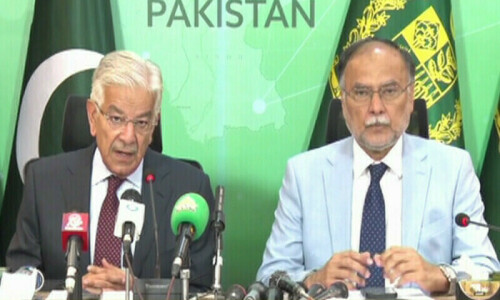












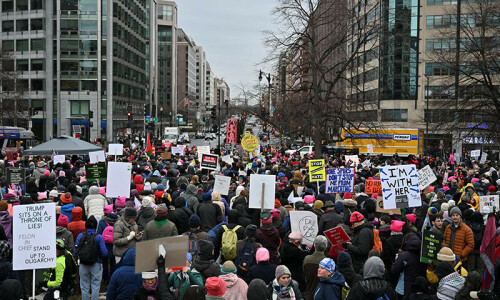
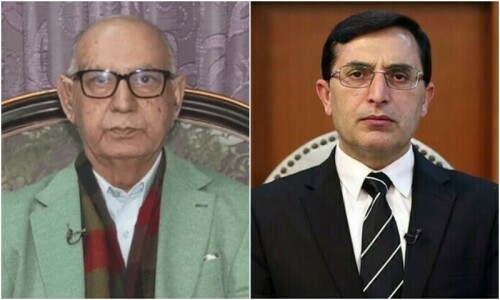





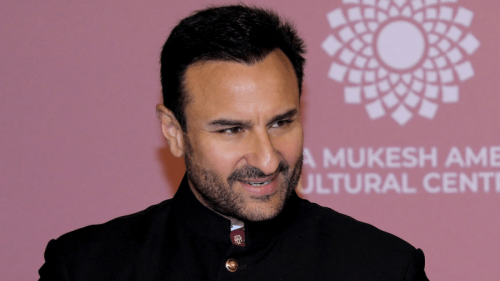













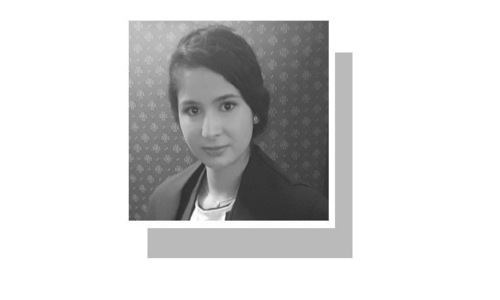
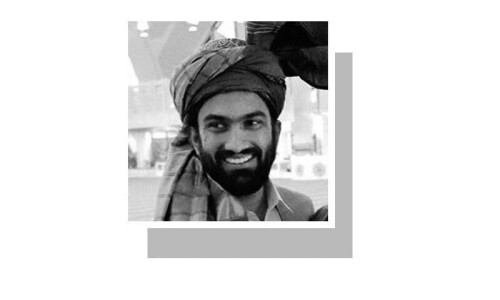
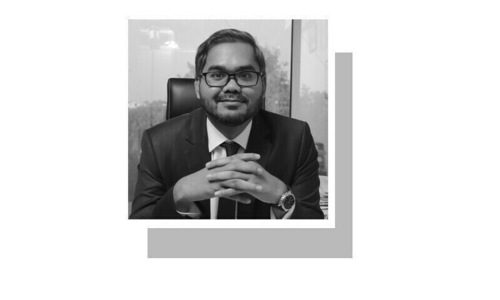



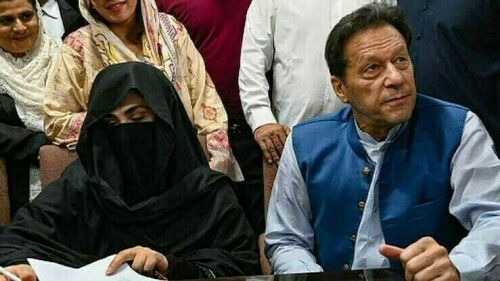

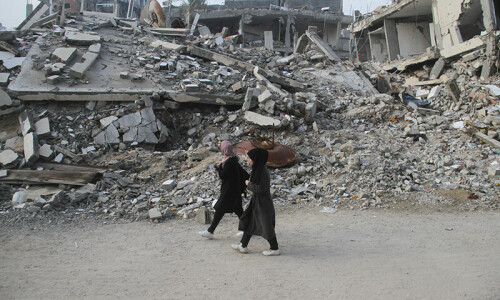



Dear visitor, the comments section is undergoing an overhaul and will return soon.